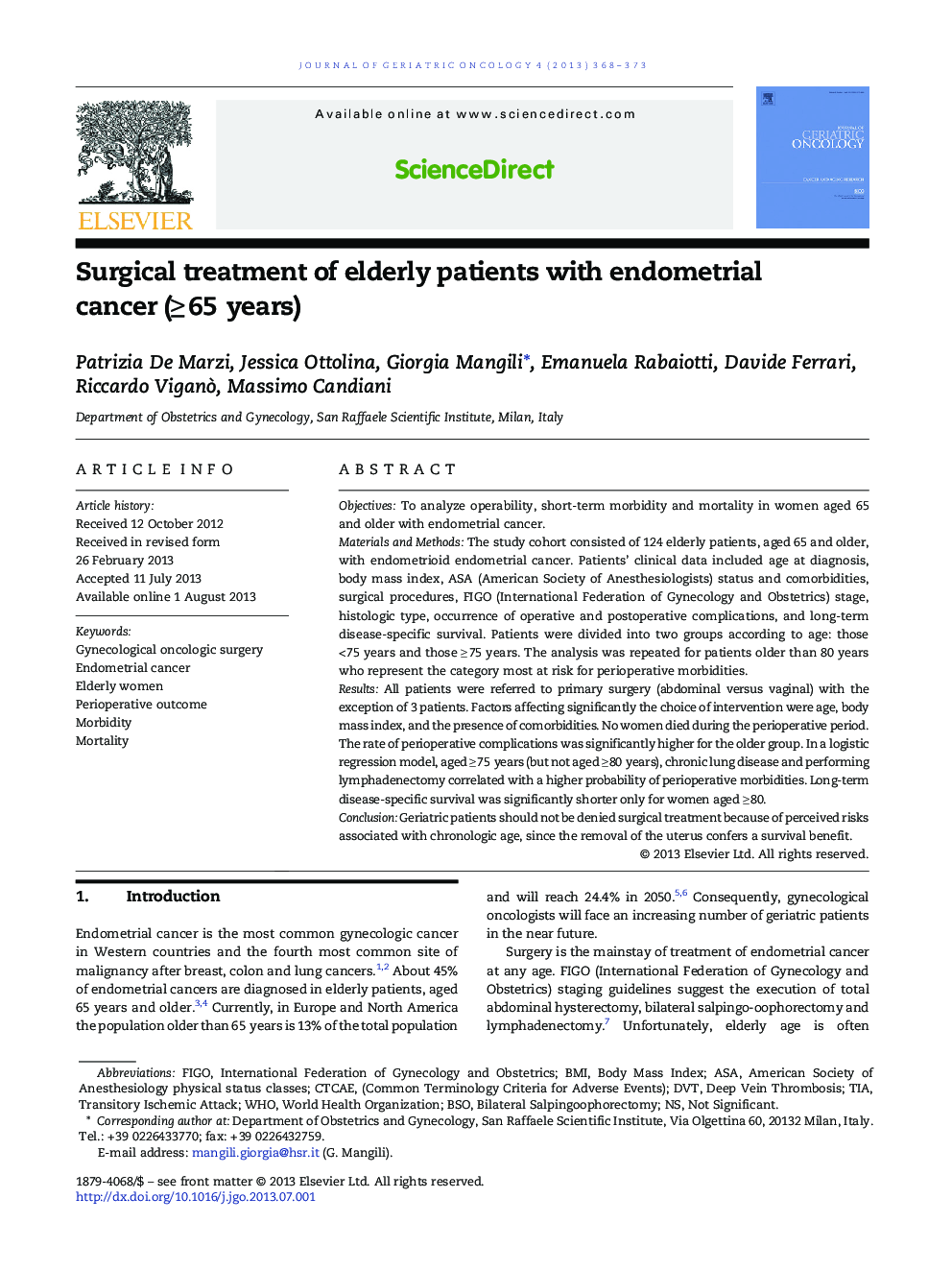| Article ID | Journal | Published Year | Pages | File Type |
|---|---|---|---|---|
| 1912873 | Journal of Geriatric Oncology | 2013 | 6 Pages |
ObjectivesTo analyze operability, short-term morbidity and mortality in women aged 65 and older with endometrial cancer.Materials and MethodsThe study cohort consisted of 124 elderly patients, aged 65 and older, with endometrioid endometrial cancer. Patients' clinical data included age at diagnosis, body mass index, ASA (American Society of Anesthesiologists) status and comorbidities, surgical procedures, FIGO (International Federation of Gynecology and Obstetrics) stage, histologic type, occurrence of operative and postoperative complications, and long-term disease-specific survival. Patients were divided into two groups according to age: those < 75 years and those ≥ 75 years. The analysis was repeated for patients older than 80 years who represent the category most at risk for perioperative morbidities.ResultsAll patients were referred to primary surgery (abdominal versus vaginal) with the exception of 3 patients. Factors affecting significantly the choice of intervention were age, body mass index, and the presence of comorbidities. No women died during the perioperative period. The rate of perioperative complications was significantly higher for the older group. In a logistic regression model, aged ≥ 75 years (but not aged ≥ 80 years), chronic lung disease and performing lymphadenectomy correlated with a higher probability of perioperative morbidities. Long-term disease-specific survival was significantly shorter only for women aged ≥ 80.ConclusionGeriatric patients should not be denied surgical treatment because of perceived risks associated with chronologic age, since the removal of the uterus confers a survival benefit.
